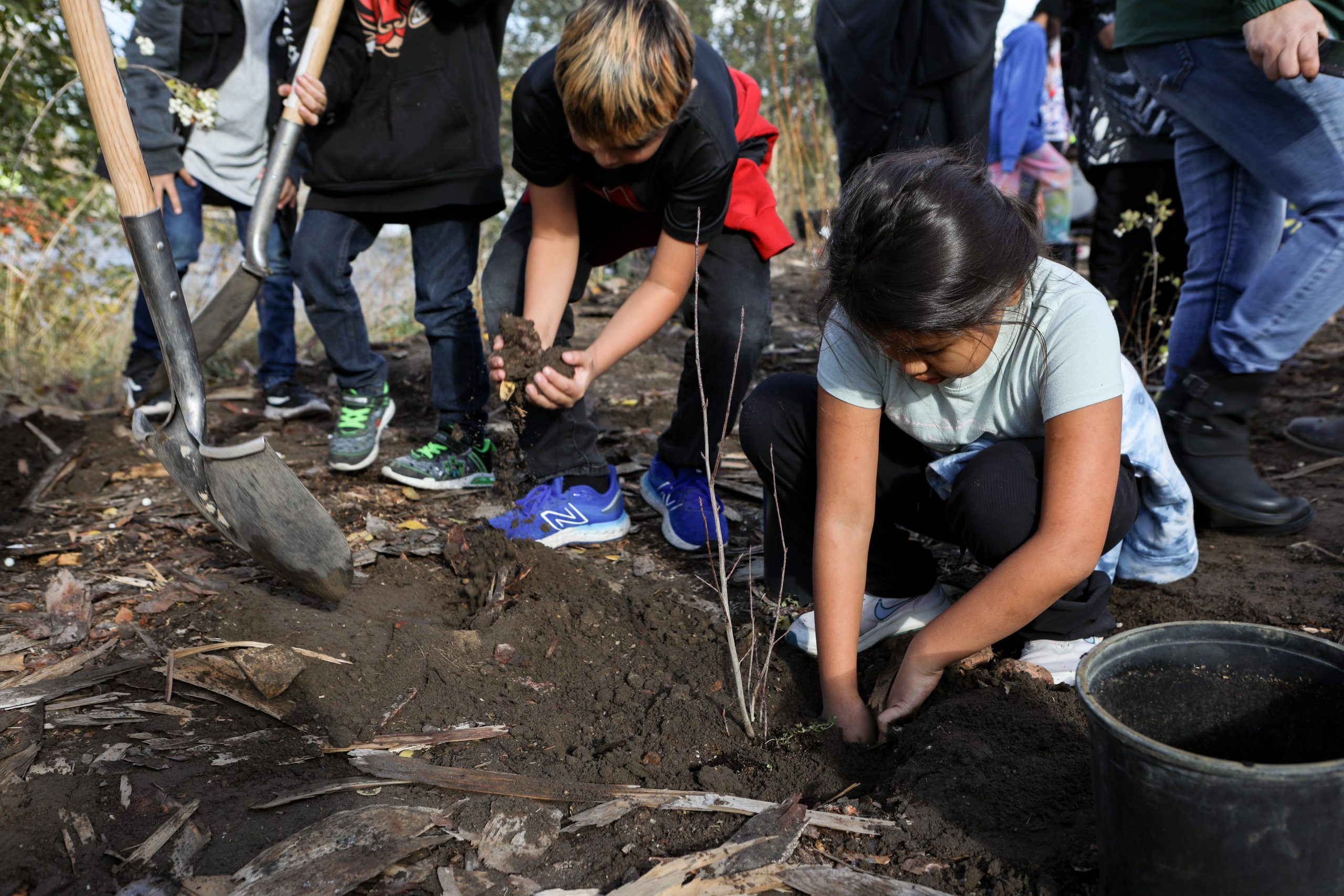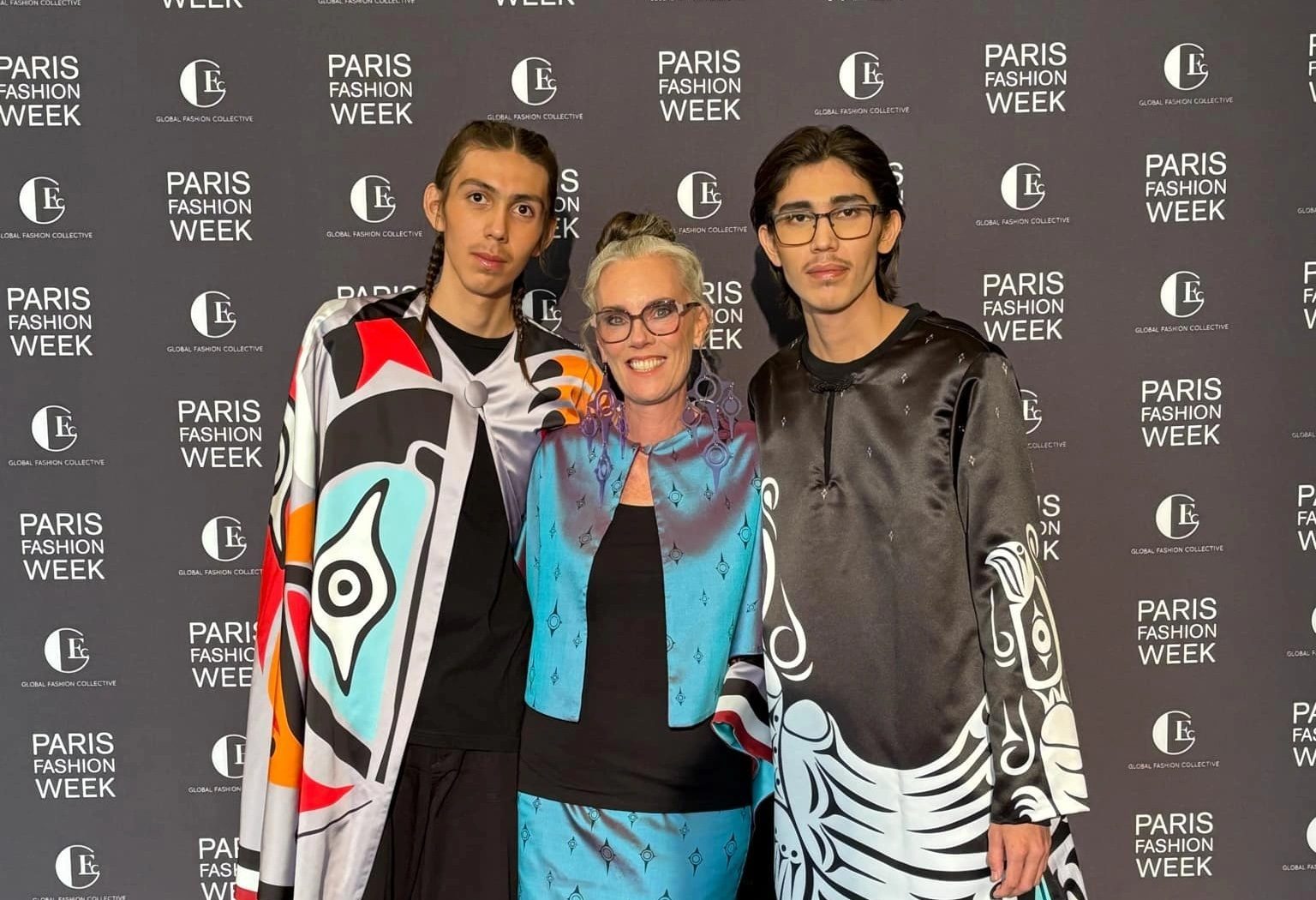In Quw’utsun territories, first salmon ceremony brings community together for the river, land and fish
Elders, Youth and other attendees gathered to welcome salmon back to the Xwulqw’selu Sta’lo with protocol and prayers
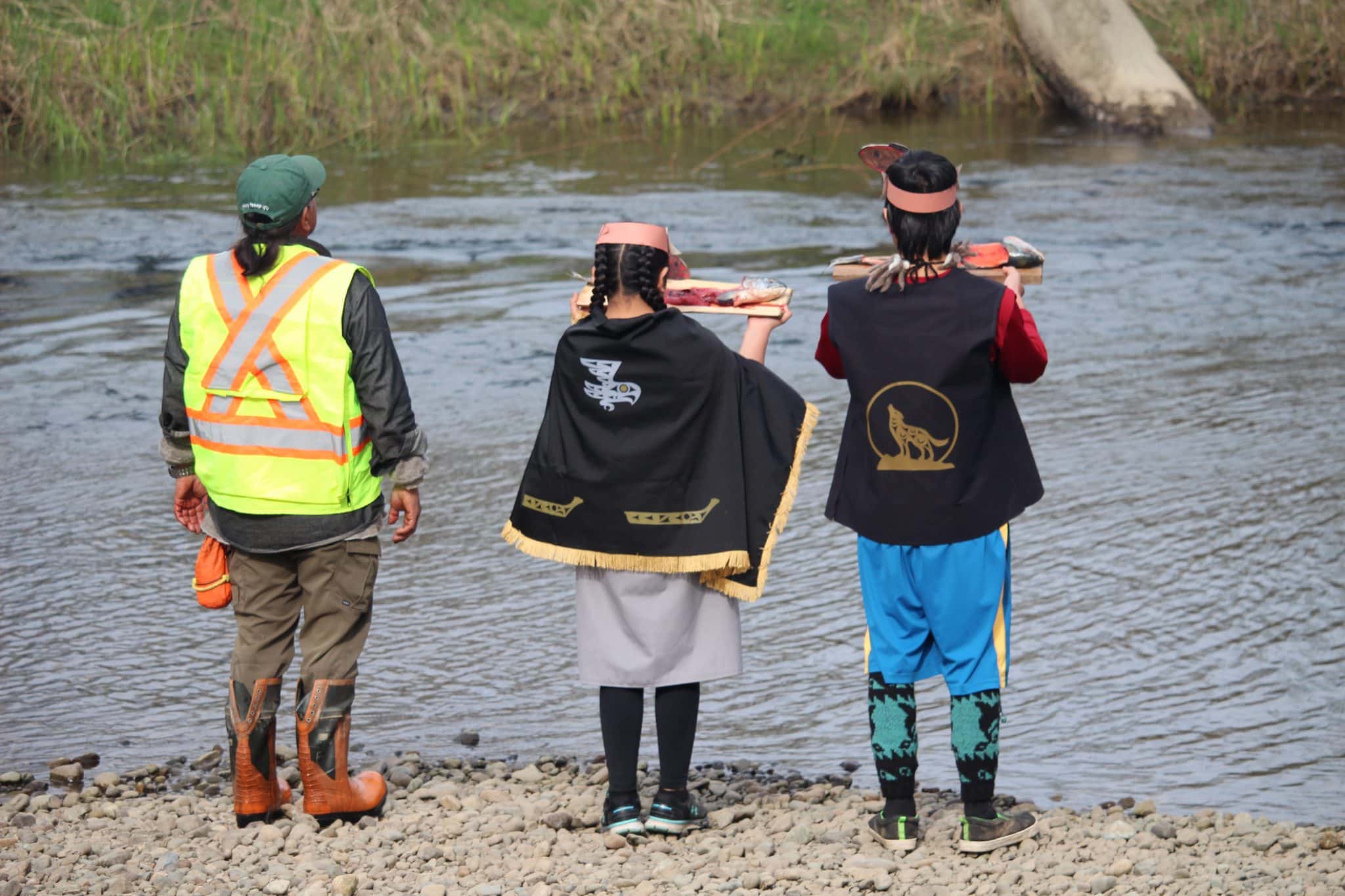
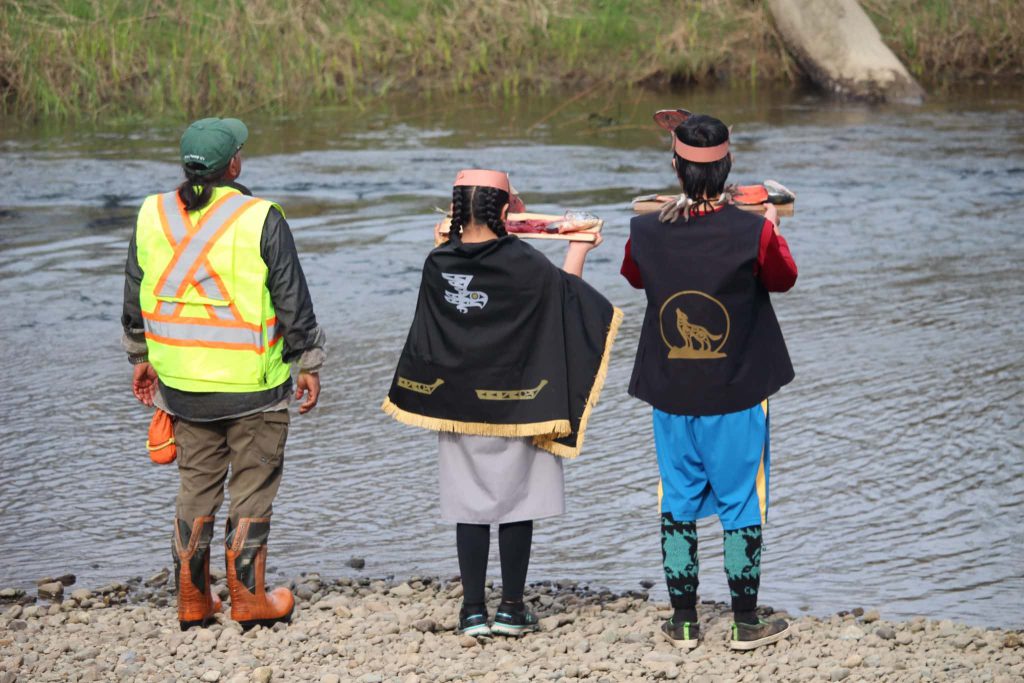
Last week, Quw’utsun people and other community members gathered along the Xwulqw’selu Sta’lo (Koksilah River), for Stth’lhnamut sqw’ulum, the first salmon ceremony.
Along the banks of the river, near the Cowichan Estuary, those in attendance heard teachings from Quw’utsun Elders, welcomed salmon to the river and committed to stewarding it and the lands around it.
The ceremony began with Qwiyahwultuhw, Elder Robert George, welcoming those in attendance.
“We wanted to lay down some teachings to all the people about looking after our river, looking after our salmon, looking after our environment,” he said. “This is what this day is for, to share those teachings and to look after the land.”
Qwiyahwultuhw then called on members of the ceremony planning team to honour witnesses — an important role rooted in oral storytelling so the ceremony can be shared with others. One by one, members of the planning team approached the two witnesses — Elder Luschiim and CVRD Area E Director Alison Nicholson — to acknowledge their role as witnesses and thank them with a coin.
As Quw’utsun Elders T’awahwiye (Philomena Williams) and Siilnahmut (Kenneth Elliott) came around to a table with fern leaves and cedar planks on it, Qwiyahwultuhw explained that they would be cutting the salmon and, alongside two Youth, would walk down to the river to return the spine and head of the fish to it so salmon are welcomed and will return to the river again.
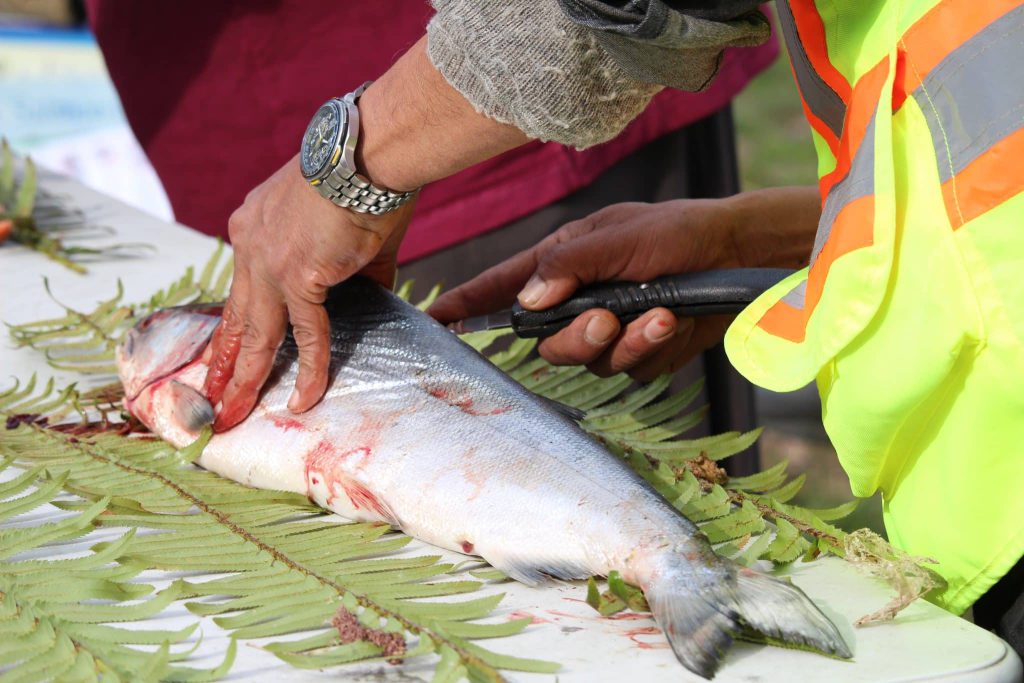
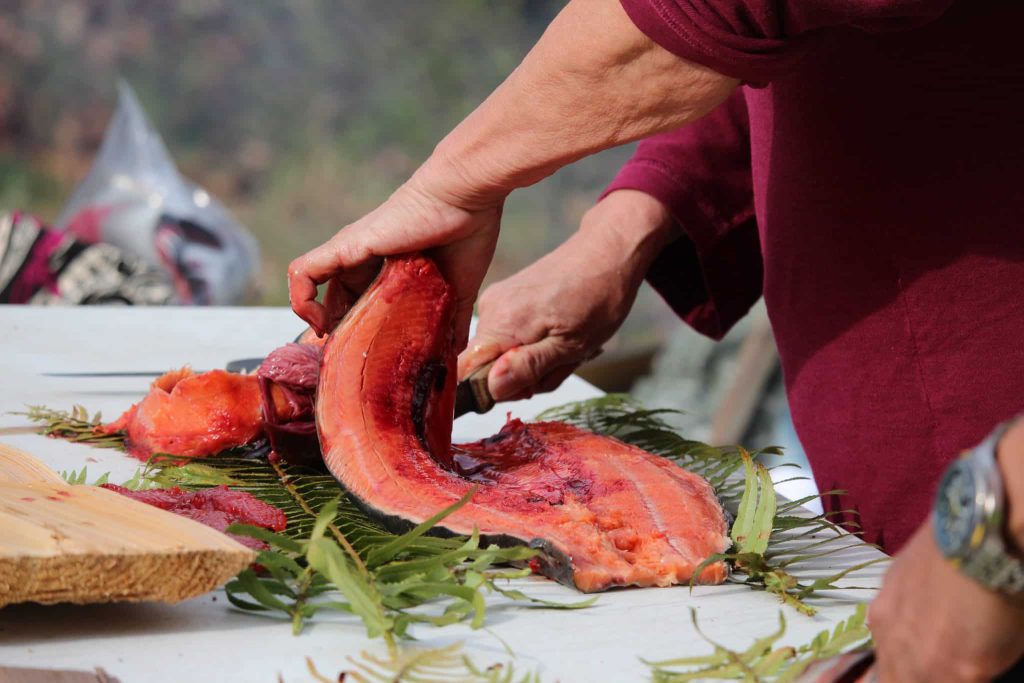
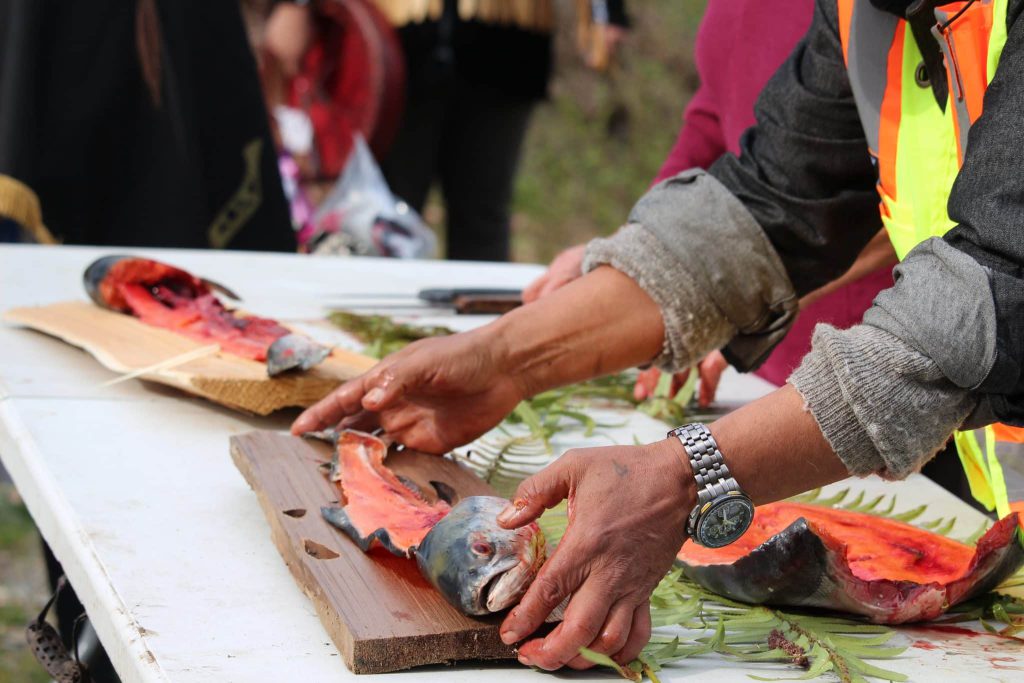
Siilnahmut, who is now 67 years old, said that he has been blessed to work with salmon his whole life. He said the river has always looked after him and his family but he has noticed changes to the river as time went on due to human activity.
“The salmon’s home is becoming more unsafe for them,” he said. “It’s medicine for my heart to be able to share in the work that’s been called for today.”
Siilnahmut said it is up to us to look after the river and nature and spoke of some restoration work that has taken place along the river to shore up its banks.
“We prayed that we could help make the salmon’s home safe for them to return back each year,” he said. “Salmon look after many people around our globe. Our work today — offering our prayers to the Creator to bless our rivers, to bless our salmon and to bless each of you as community members — we’re learning to understand how connected we all really are.”
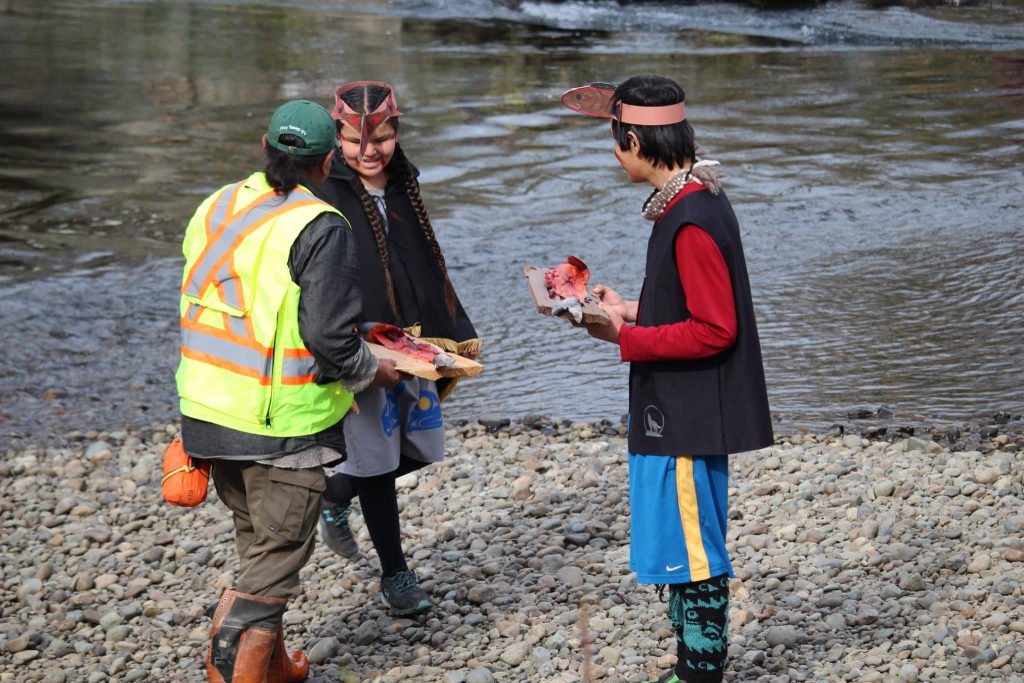
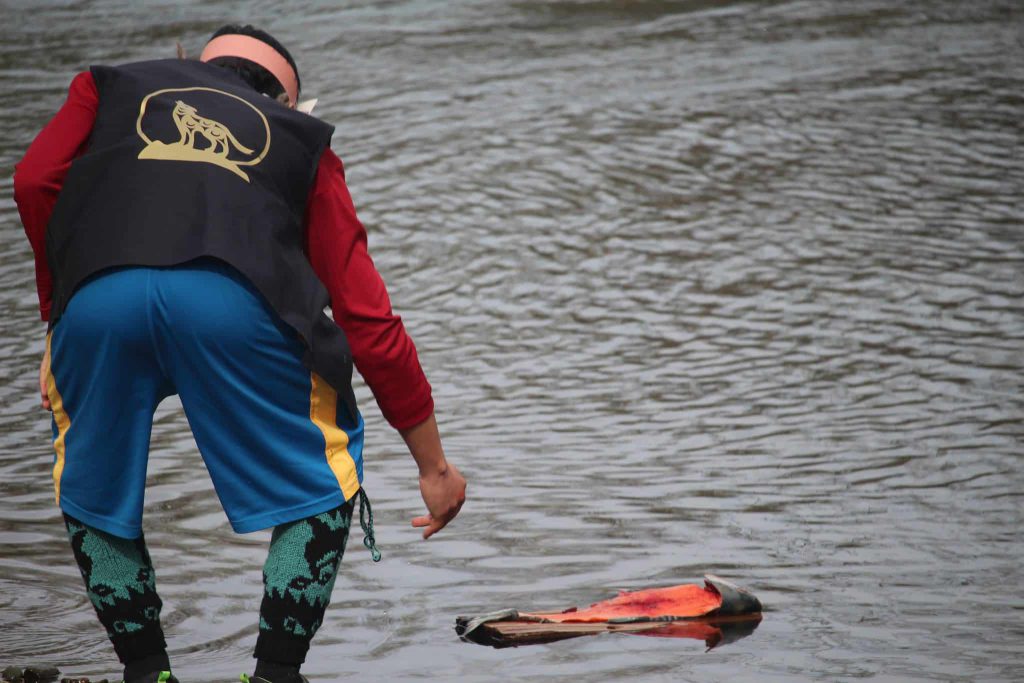
T’awahwiye remarked on the number of people — of all ages — who came together for the ceremony and to pledge to steward the river and the lands.
“We have a building in our tribes called Lulumexun and that means guardian — of the rivers and forest. It’s up to each and every one of us to be that guardian as well,” she said. “We need to look after the habitat of the animals and fish. The more that we learn about it the more it needs to be spread … Our poor animals are in dire straits. Our trees, we don’t know how long the xpey’ (cedar) is going to last. It’s up to us to see that we have them much longer.”
Then, quickly, quietly and with the skill of those who have had much practice, T’awahwiye and Siilnahmut fileted the salmon and laid the spine and head on the cedar planks in front of them.
The ceremony was followed by dances, performed by children from Alexander Elementary School. The dances brought people together, and even incorporated adults and other observers at times — including students from Sunrise Waldorf School who were in attendance.
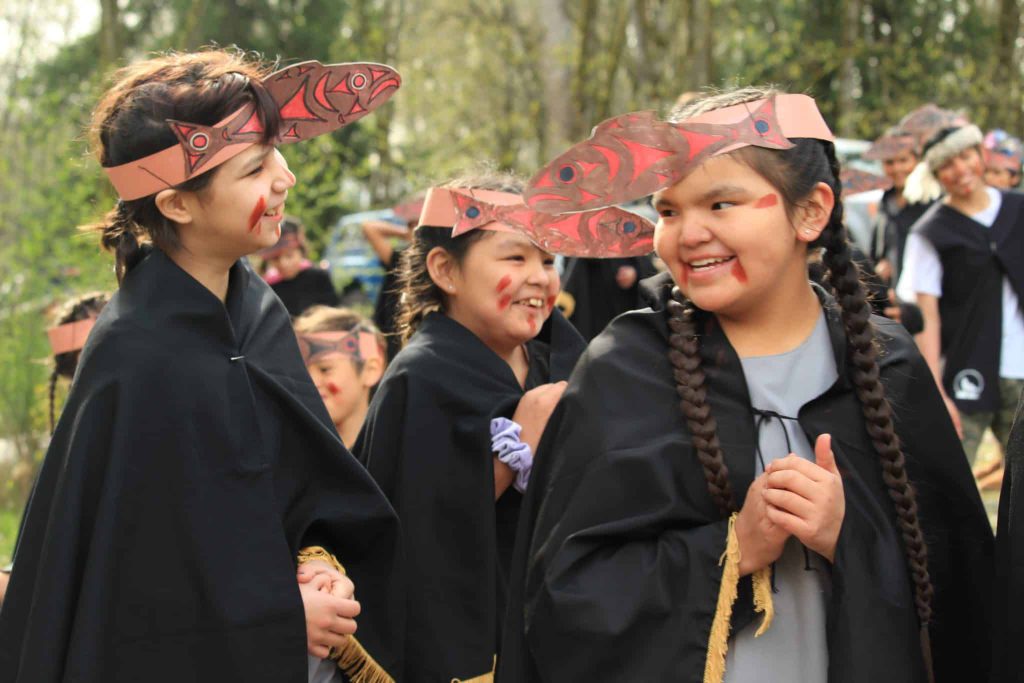
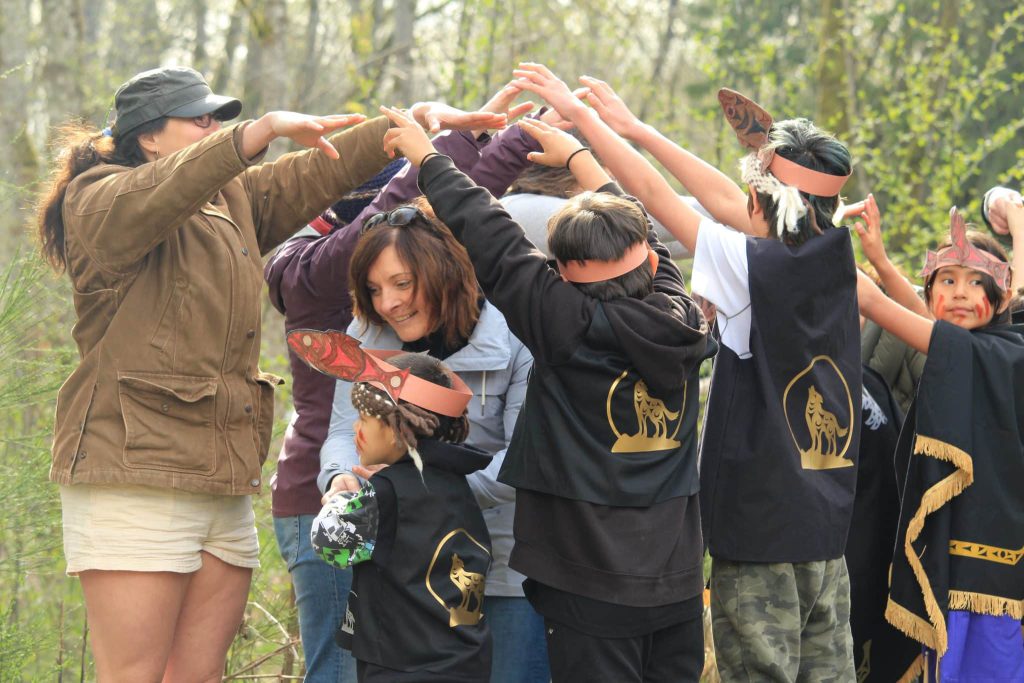
Following the dances, community members crossed the river to participate in various activities.
T’awahwiye offered Hul’q’umi’num’ language lessons and Siilnahmut worked with youth and community members in live staking dogwood trees along the bank of the river to support its restoration.
Community members at the ceremony also had the opportunity to participate in Project 84,000, a community art project to honour the estimated 84,000 juvenile steelhead trout, lake trout, cutthroat trout, and other species that died in the Cowichan River last summer amidst heat, drought and poor environmental conditions.
The ceremony closed with a gathering around a fire, drumming, singing and forming a circle where all participants held hands to close the day.
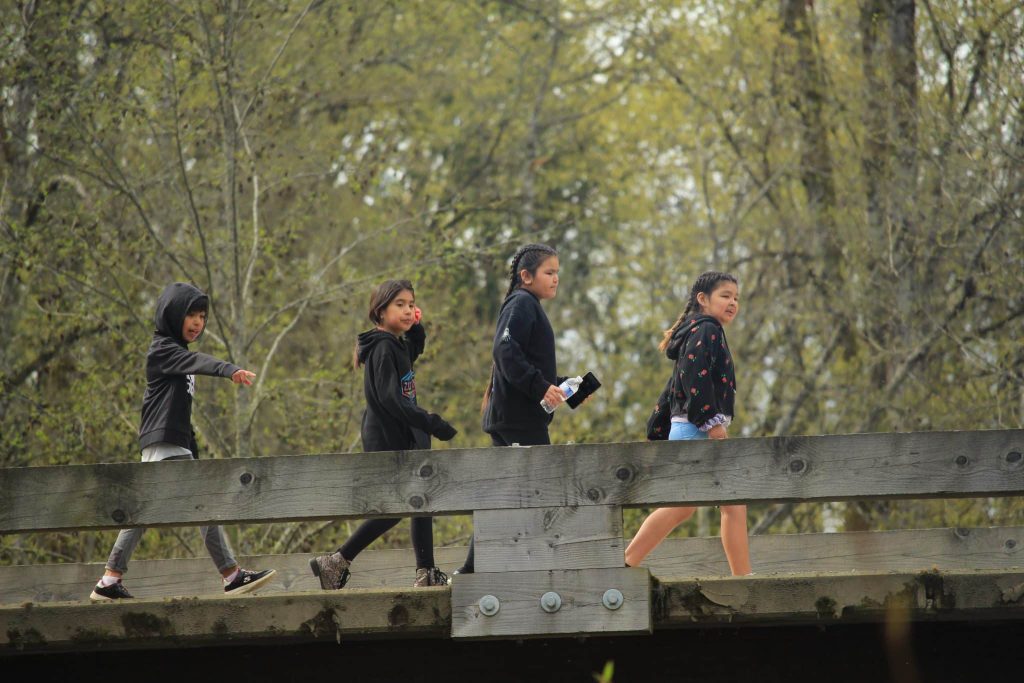
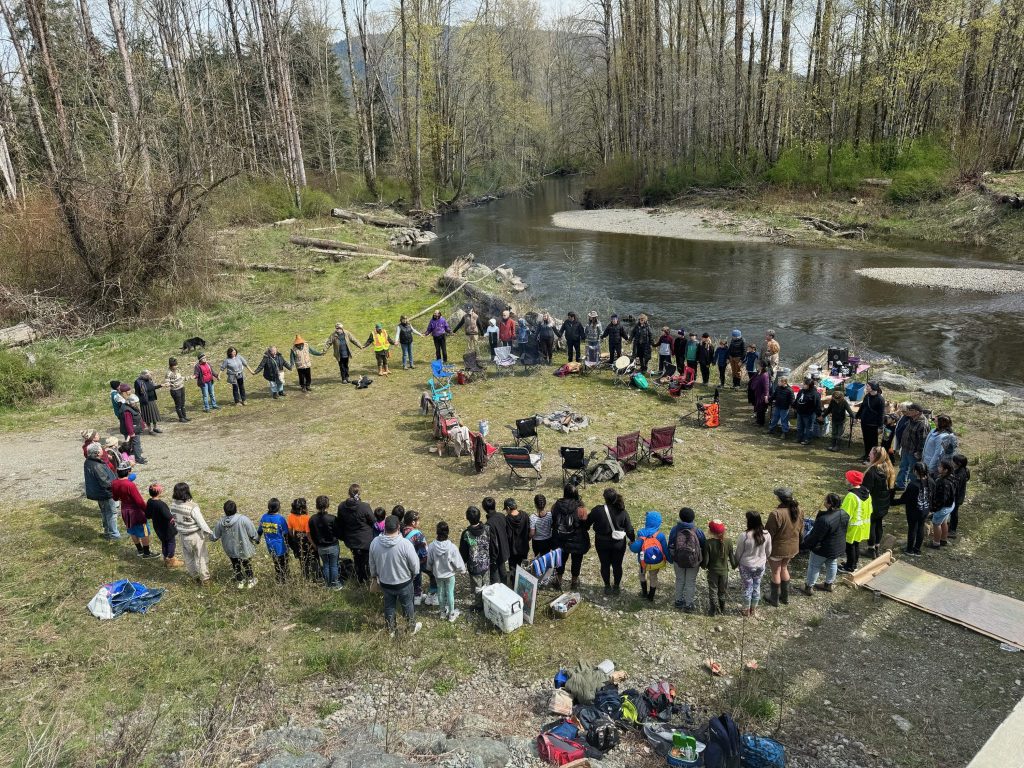
Author
Latest Stories
-
‘Bring her home’: How Buffalo Woman was identified as Ashlee Shingoose
The Anishininew mother as been missing since 2022 — now, her family is one step closer to bringing her home as the Province of Manitoba vows to search for her
-
‘Our lives are documented in the art’: Snuneymuxw design house weaves love and loss into new collection
Ay Lelum debuted its latest ‘Bright Stars’ collection in Paris on Oct. 2, with designs that record family history through clothing



